In the context of profound changes in education , AI has become one of the most prominent technology trends, promising to reshape the way we approach teaching, learning and school management. As leaders and guides for the future of education in public schools, it is essential for administrators to grasp and understand AI.
PERSONALIZED LEARNING FOR STUDENTS
Strategically integrating AI into schools can bring many practical benefits. One of the most important benefits is the ability to personalize learning. AI can deeply analyze each student's learning data, thereby identifying each student's strengths, weaknesses, and optimal learning style. Based on this analysis, the AI system can recommend learning materials, practice exercises, and specially adjusted learning paths, helping each student progress at their own pace and ability, maximizing their individual potential.
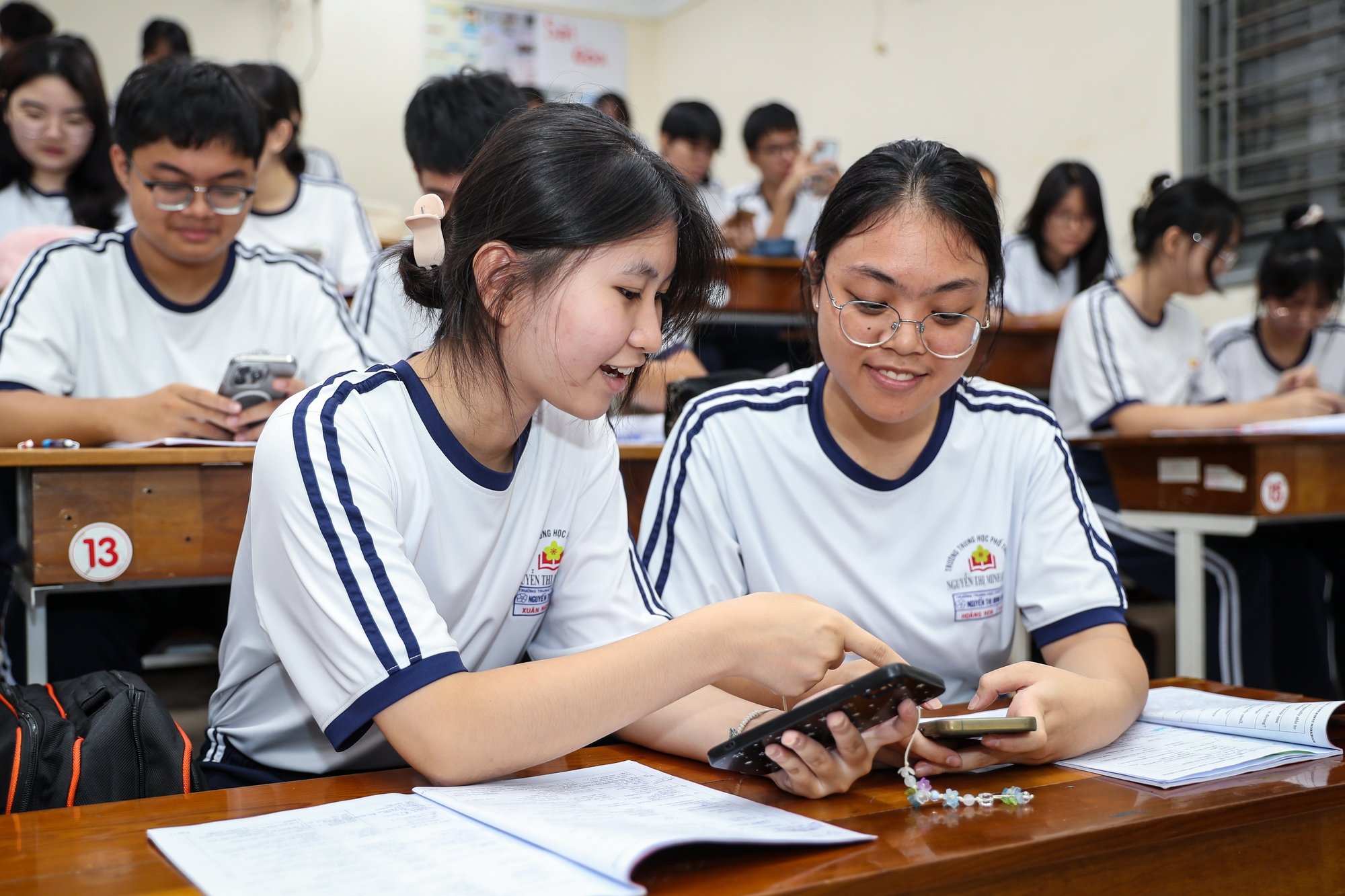
AI can deeply analyze each student's learning data, thereby identifying each student's strengths, weaknesses, and optimal learning style.
PHOTO: NHAT THINH
In addition, AI also contributes to enhancing the learning experience for students by providing rich and diverse learning resources such as interactive lectures simulating reality and vivid virtual learning tools, helping students become more interested in learning activities.
Another important ability of AI is early problem detection by being able to identify signs that students are at risk of learning difficulties or behavioral problems, thereby helping schools to intervene promptly and effectively, supporting students to overcome challenges.
A POWERFUL ASSISTANT FOR TEACHERS AND MANAGERS
AI is also a powerful assistant for teachers. Repetitive and time-consuming administrative tasks such as grading multiple-choice tests, tracking and recording individual student progress, or automatically reporting learning outcomes can be handled by AI efficiently and accurately. This frees up teachers’ time to focus on more important activities such as directly interacting with students, designing innovative lessons, and professional development.
AI can go beyond just supporting teaching and learning, and can significantly improve school management. Principals and administrators can leverage AI to analyze large data sets about students (e.g., enrollment trends, year-over-year learning outcomes), teachers (e.g., resource allocation, performance evaluations, etc.), and facilities. From these analyses, management decisions will become more feasible, faster, and more effective.
ETHICS AND FAIRNESS IN AI APPROACH
Along with the above mentioned great benefits, implementing AI in schools also comes with some challenges that need to be carefully considered.
The initial investment cost for technology and network infrastructure is not a small issue. Moreover, training and capacity building for teachers and managers is extremely important so that they can understand, effectively use and integrate AI into their daily professional activities. Data security and student privacy are top concerns, requiring strict regulations and technical measures to protect sensitive information.
In addition, ethical issues also need to be carefully considered, ensuring that the use of AI is transparent and does not carry hidden biases in the tools and software used.
Ultimately, ensuring equitable access to AI for all students, regardless of socioeconomic background, is key to avoiding educational polarization.
To fully capitalize on the potential of AI and overcome the challenges outlined above, school leaders should consider designing specific implementation steps. First and foremost, develop a clear strategic vision of how AI will support and enhance the school’s educational goals. Next, invest in training and professional development for teachers and staff.
Instead of rolling it out en masse, school leaders should start small with pilot activities. This allows them to evaluate the effectiveness, learn from the experience, and adjust before expanding. Depending on the specific conditions of the school, collaborate with AI experts in the education sector to get the necessary professional advice and guidance. At the same time, pay attention to ethical issues and data security by setting clear regulations and closely monitoring compliance with those regulations.
Finally, teachers should be encouraged to innovate and experiment with new AI tools to find ways to apply them in teaching and learning to achieve the highest efficiency.

Creating new pedagogical methods is also something that AI has not been able to do yet.
PHOTO: NHAT THINH
THINGS THAT NO ONE CAN REPLACE
AI is a powerful tool but it is not the solution to every problem in school management. In fact, there are many core aspects where the role of administrators is irreplaceable, such as: Defining the school's vision, core values and educational philosophy.
AI can analyze data and suggest trends, but it cannot create the soul, identity and human values that a school wants to convey. The vision of "happy students", "global citizens" or "critical thinking" must come from the contemplation, experience and professional conscience of the school's administrators, teachers and staff.
AI also cannot make decisions about strategy, people and ethics: AI can analyze data to make predictions, but final decisions about curriculum changes, assessment methods or regulations that directly affect students and teachers require deep consideration of ethics, psychological impact and other human-related factors that AI cannot understand.
For example, AI can predict a student is at risk of dropping out through data analysis, but decisions about how to intervene, such as psychological counseling, financial support, or changing the learning environment, require empathy, understanding, and pedagogical experience from administrators and teachers.
AI cannot build relationships or cultural environments. AI can support communication but cannot build trust, cohesion, and solidarity among teachers, between teachers and students, or between schools and parents. Creating a positive, open, and innovative school culture is the job of the school board, in which the role of administrators will be decisive.
Creating new pedagogical methods is also something that AI cannot do.
AI has not yet replaced humans in education in terms of character, ethics, and emotions. These are areas that require direct interaction, empathy, the ability to model and direct instruction from teachers.
AI cannot resolve conflicts and sensitive issues. Situations involving conflicts between students, between teachers and parents or other sensitive issues require human communication, negotiation and problem-solving skills, based on understanding and practical experience.
Source: https://thanhnien.vn/ai-khong-the-tao-ra-linh-hon-ban-sac-gia-tri-nhan-van-cua-mot-ngoi-truong-185251114184352681.htm













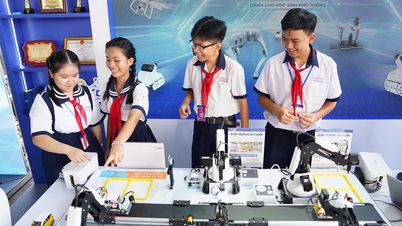




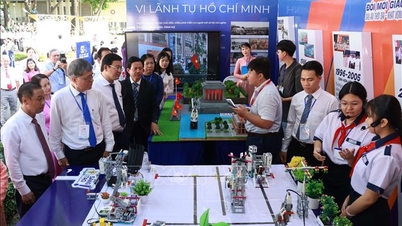















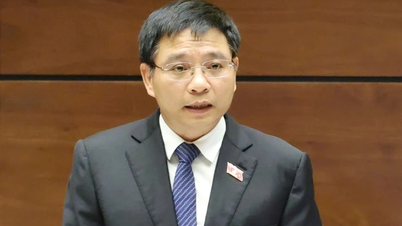


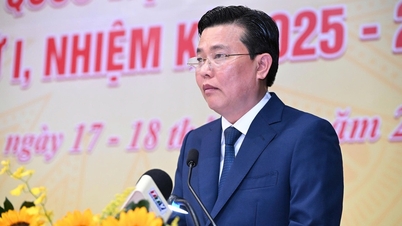


![[Photo] General Secretary To Lam and National Assembly Chairman Tran Thanh Man attend the 80th Anniversary of the Traditional Day of the Vietnamese Inspection Sector](https://vphoto.vietnam.vn/thumb/1200x675/vietnam/resource/IMAGE/2025/11/17/1763356362984_a2-bnd-7940-3561-jpg.webp)




































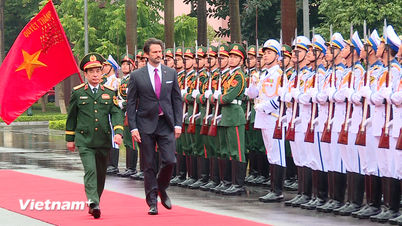














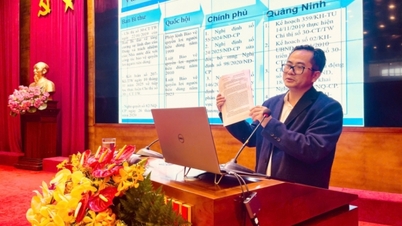
















Comment (0)